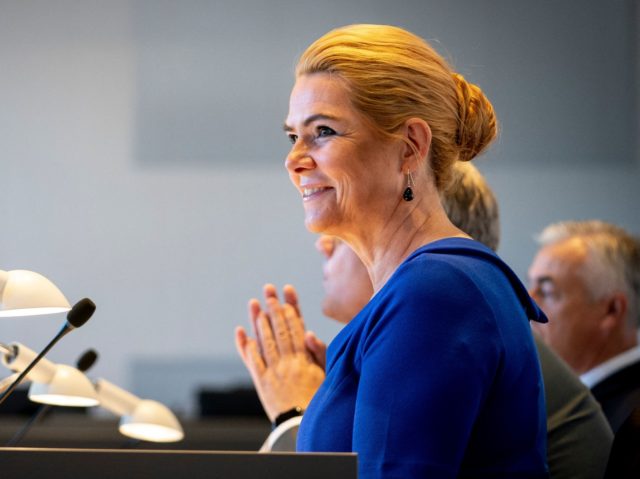The hardline former immigration minister Inger Støjberg has teamed up with the populist Danish People’s Party (DF) on a plan to deport as many as 50,000 migrants by 2030.
Støjberg, who sits in parliament as an independent after leaving the Liberal Party, has joined with the populists on a plan that could see as many as 70 per cent of the people who have come to Denmark in the last few decades as refugees or under family reunification rules be deported.
The proposal would lead to the deportation of migrants who have been unemployed for seven of the last ten years, have been on welfare benefits for more than 12 consecutive months, have not attained a certain proficiency in the Danish language, or have been convicted of a crime that resulted in a prison sentence of more than three-months, amongst other criteria.
According to a report from the Danish television broadcaster TV2, both Støjberg and the Danish People’s Party believe that under the conditions of the proposal, at least 50,000 migrants could face deportation.
Støjberg and DF leader Kristian Thulesen Dahl admitted that the bill could see problems regarding international agreements Denmark has signed, but stated the Danish parliament should have the final say and deal with objections later.
The new proposal comes just over a month since Støjberg’s impeachment trial began for actions she undertook while serving as immigration minister during the height of the European migrant crisis in 2016.
She introduced more than 100 restrictions on migrants, including forcibly separating adult men from their underage brides, a policy that was in force for just a few months, but has been seen by some as a violation of human rights and was declared illegal by a special commission.
Støjberg defended her actions in February of this year, saying: “Imagine arriving in a country like Denmark, a country of equality, as a young girl victim of a forced marriage, and you discover that instead of giving you the possibility to break free of your forced marriage, the state forces you to stay together in an asylum reception centre.”

COMMENTS
Please let us know if you're having issues with commenting.